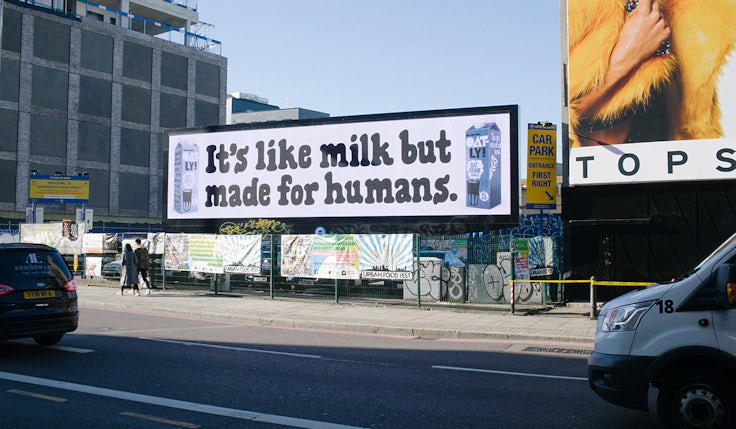Data ethics, ROI, CMO tenure: 5 interesting stats to start your week
We arm marketers with all the numbers they need to tackle the week ahead.
Three-quarters of CMOs believe data ethics are becoming more important
Almost three-quarters (74%) of CMOs say data ethics will be more important to their roles in the next five years as issues around data collection and privacy rise up the agenda.
The survey of 147 marketing execs, with a combined $55bn (£44.5bn) spend on marketing, found that 82% would consider leaving an employer if they felt the approach to data was not ethical. Some 26% have already felt uncomfortable about the use of data at some time during their careers.
Just 48% of CMOs say their company has a data ethics policy.
Source: World Federation of Advertisers
Businesses that don’t reallocate media spend risk 30% drop in ROI
 Businesses that don’t reallocate their marketing spend could see their return on marketing investment (ROMI) fall by 30% this year.
Businesses that don’t reallocate their marketing spend could see their return on marketing investment (ROMI) fall by 30% this year.
Simulations based on the ‘typical advertiser’ show that adjusting topline budget, rephasing and changing the media mix could help businesses collectively recover almost £550m in lost profit contribution in the UK.
Steps to protect profit include reducing overall ad spend, and reducing share of cinema, out-of-home and print. TV, search, digital media and radio should all be increased as a share of investment. And while some advertisers should increase investment in TV, deflation in TV ad prices means many should reduce investment in order to benefit from reduced cost and over-delivery.
Source: Ebiquity
More women and ethnic minorities taking on CMO roles
 There has been a significant increase in the number of women holding the title of chief marketing officer (CMO) in the US, as well as a major uptick in the number of CMOs from BAME backgrounds.
There has been a significant increase in the number of women holding the title of chief marketing officer (CMO) in the US, as well as a major uptick in the number of CMOs from BAME backgrounds.
Almost half (43%) of CMOs were women in 2019 compared to 36% in 2018 and 28% in 2017. Of those CMOs who began their tenure in 2019, 48% were women, up from 44% in 2018 and 38% in 2017.
Some 14% of all CMOs come from diverse backgrounds, up from 10% in 2018 and 2017. And of all new CMOs, 19% were from racially and/or ethnically diverse backgrounds, compared to zero in 2018.
The study, which is based on an analysis of the tenures of CMOs from 100 of the most-advertised US brands, also found that the average tenure for CMOs decreased from 43 months to 41 months.
Source: Spencer Stuart
Global ad spend to fall by 8.1% this year
 Global ad spend is set to fall by 8.1% year on year to $563bn (£455.6bn) in 2020, down from a previous forecast of 7.1% growth for this year.
Global ad spend is set to fall by 8.1% year on year to $563bn (£455.6bn) in 2020, down from a previous forecast of 7.1% growth for this year.
Traditional media is set to experience a fall of 16.3%, with declines in cinema of 31.6%, outdoor 21.7%, newspapers 19.5%, radio 16.2% and TV 13.8%.
Online spend is expected to almost grind to a halt, with growth of just 0.6%. Social media will experience a 9.8% rise in spend, online video 5% and online search 0.9% – far lower than previously predicted.
Despite heavy downgrades, the global decline in 2020 is expected to be softer than that recorded in 2009, when the ad market contracted by 12.7%, in part due to the US election.
Source: Warc
Grocery sales grow at fastest ever rate
 Take-home grocery sales in the UK rose by 14.3% year on year during the 12 weeks to 17 May, the fastest rate since comparable records began in 1994.
Take-home grocery sales in the UK rose by 14.3% year on year during the 12 weeks to 17 May, the fastest rate since comparable records began in 1994.
Shoppers visited the supermarket 3.5 times per week on average, meaning 100 million fewer trips overall than the same month last year. They also increased their spend each trip to £27.41 – nearly 50% more than during normal times.
Online grocery sales, meanwhile, were up 75% and now account for 11.5% of grocery sales – attracting more shoppers in 2020 then in the previous five years. Nearly one in five British households ordered groceries online in the four weeks to 17 May, 1.6 million more than this time last year.
Source: Kantar







